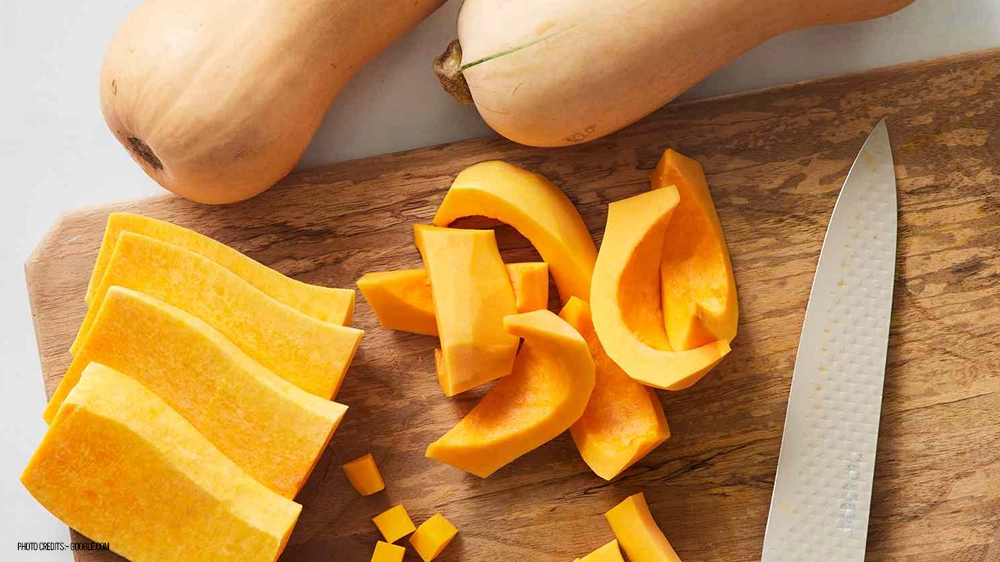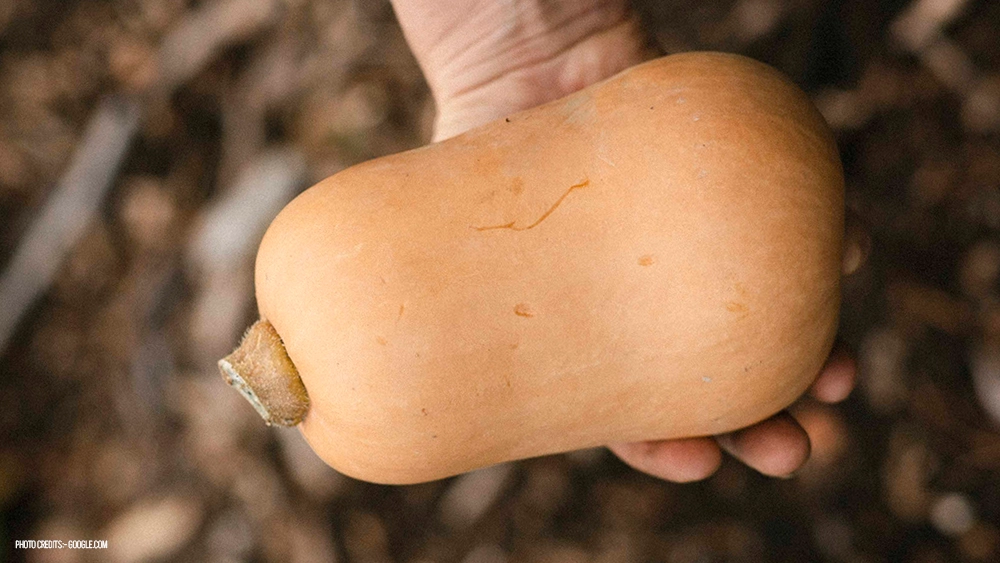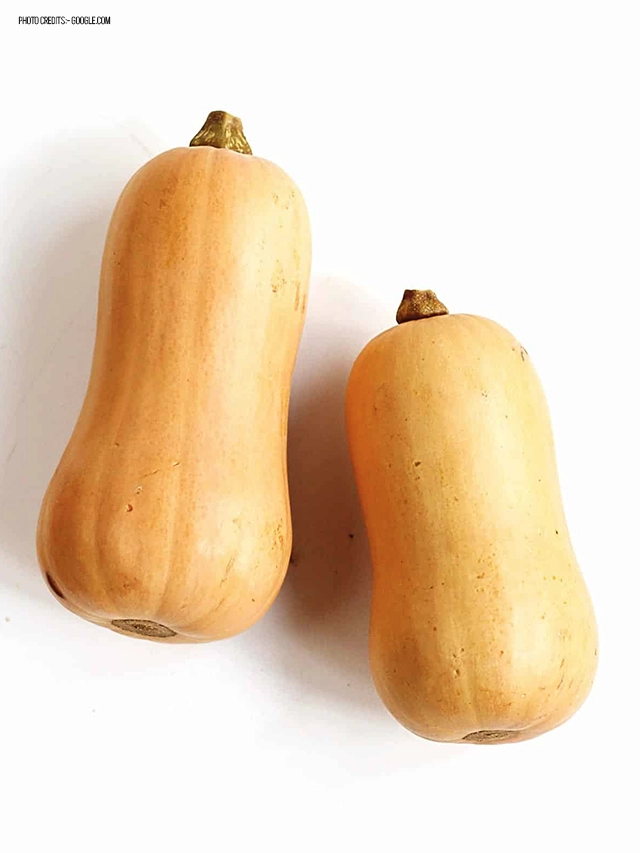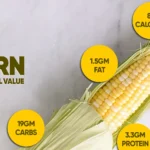HEALTH BLOG
Butternut Squash Nutrition Facts: A Delicious Guide to Its Health Benefits
-
Rahul Priydarss
Discover the impressive butternut squash nutrition facts and learn why this nutrient-packed vegetable deserves a spot in your diet. Rich in vitamins A and C, potassium, fiber, and antioxidants, butternut squash supports eye health, immune function, heart wellness, and digestion. This guide covers everything from its low-calorie benefits to blood sugar management and versatile culinary uses. Whether you’re aiming for weight loss or simply adding more nutrients to meals, butternut squash is a flavorful, health-boosting choice. Dive in to find tips on selecting, storing, and cooking butternut squash for a nutritious addition to your diet.
Introduction To Butternut Squash Nutrition Facts:
Butternut squash is a nutrition powerhouse packed with essential vitamins, minerals, and antioxidants that benefit everything from eye health to immunity. With a creamy, nutty flavor and bright orange color, this versatile vegetable not only enhances various dishes but also adds a rich nutrient profile to your diet. This guide dives into the nutrition details, culinary uses, and numerous health benefits of butternut squash, explaining why it’s a valuable choice for anyone focused on wellness.
While often enjoyed in the fall and winter, butternut squash is a versatile vegetable worth incorporating into meals year-round. It’s low in calories but high in vitamins and minerals, making it ideal for boosting nutrient intake without adding excessive calories. We’ll explore all aspects of butternut squash—from its unique nutritional profile and health benefits to delicious ways to incorporate it into your diet, ensuring you get the most out of this fantastic vegetable.
What is Butternut Squash:
Butternut squash is a type of winter squash known for its sweet, nutty flavor and creamy texture. It has a distinct pear shape with smooth, tan skin and vibrant orange flesh. This vegetable is highly nutritious, packed with vitamins like A and C, minerals, fiber, and antioxidants. Its dense flesh becomes soft and flavorful when cooked, making it popular in soups, roasted dishes, and purees. Butternut squash is versatile and can be enjoyed in savory and even sweet recipes. Its natural sweetness, rich color, and health benefits make it a favorite addition to various meals and diets.

Table of Contents
What Nutrients Are in Butternut Squash:
Butternut squash is rich in vitamins A, C, E, K, and several B vitamins (including B6, folate, and niacin), each contributing uniquely to health.
Vitamin A (Beta-Carotene): Vitamin A is critical for eye health, skin health, and immune system function. In butternut squash, vitamin A comes primarily in the form of beta-carotene, a plant pigment with antioxidant properties. Research shows that foods high in beta-carotene can protect against certain types of vision loss, such as macular degeneration, and enhance immune resilience against infections. One cup of cooked butternut squash contains over 450% of the recommended daily intake for vitamin A, making it one of the richest plant sources available.
Vitamin C: Vitamin C in butternut squash acts as a potent antioxidant that helps the body fight oxidative stress, supports immune defense, and is crucial for collagen synthesis—important for skin and connective tissues. Regular intake of vitamin C has been linked to decreased risk of chronic diseases, faster wound healing, and healthier skin. With roughly 32% of the daily requirement in a cup, butternut squash is an excellent source.
B Vitamins (Especially B6 and Folate): Butternut squash also contains essential B vitamins, including B6 (pyridoxine) and folate. Vitamin B6 supports brain health and helps regulate mood by contributing to serotonin production. Folate is particularly essential for pregnant women as it supports fetal development, specifically brain and spine formation. Each serving provides 10% of the daily B6 and about 6% of folate requirements, supporting energy production and cellular health.
How Many Calories Are in Butternut Squash:
Butternut squash is notably low in calories, with about 82 calories per cooked cup. These calories primarily come from complex carbohydrates, which provide long-lasting energy without sudden spikes in blood sugar levels. For anyone aiming to control calorie intake or maintain a healthy weight, butternut squash is ideal because it’s filling and nutrient-dense.
Low-Calorie, High-Nutrient Profile The low-calorie content combined with its nutrient density makes butternut squash a popular choice for individuals on low-calorie diets. Studies have shown that eating low-calorie, nutrient-rich foods like butternut squash is linked to healthier weight management and reduced overall calorie intake.
Carbohydrates and Fiber Content in Butternut Squash:
Butternut squash is rich in complex carbohydrates and fiber, offering about 22 grams of carbs per cup, along with 7 grams of dietary fiber. Fiber supports digestive health, promotes satiety, and aids in stabilizing blood sugar levels.
Benefits of Dietary Fiber: Fiber is essential for healthy digestion and can reduce the risk of certain chronic conditions, such as heart disease, diabetes, and obesity. Butternut squash contains both soluble and insoluble fiber types. Soluble fiber helps lower cholesterol levels by binding to it in the digestive tract, while insoluble fiber promotes bowel regularity, preventing constipation.
Carbohydrates for Steady Energy: The complex carbohydrates in butternut squash are slowly digested, leading to a steady energy release, making it suitable for those looking to maintain balanced blood sugar levels. Unlike refined carbs, the carbs in butternut squash do not lead to sudden energy spikes and crashes, helping sustain energy throughout the day.
Butternut Squash Nutrition Facts (per 1 cup, cubed – approx. 205 grams):
Table Format
| Nutrient | Amount per 1 cup (205g) | % Daily Value (DV) |
|---|---|---|
| Calories | 82 kcal | – |
| Total Fat | 0.2 g | 0% |
| Saturated Fat | 0 g | 0% |
| Cholesterol | 0 mg | 0% |
| Sodium | 8 mg | 0% |
| Potassium | 582 mg | 17% |
| Total Carbohydrate | 22 g | 7% |
| Dietary Fiber | 6.6 g | 26% |
| Sugars | 4 g | – |
| Protein | 1.8 g | – |
| Vitamin A | 1144 mcg | 127% |
| Vitamin C | 31 mg | 52% |
| Calcium | 84 mg | 8% |
| Iron | 1.2 mg | 7% |

Does Butternut Squash Contain Protein:
Butternut squash is not particularly high in protein, containing about 1.8 grams per cup, which is a modest amount compared to other vegetables. While it doesn’t serve as a primary protein source, it can still contribute to overall protein intake, especially when combined with other high-protein foods.
Protein in Plant-Based Diets: For individuals following plant-based diets, butternut squash can complement protein-rich foods like lentils, beans, and quinoa to ensure a well-rounded amino acid intake. Including butternut squash with these foods can help meet daily protein needs while maximizing nutrient intake.
Health Benefits of Butternut Squash:
The nutritional profile of butternut squash offers various health benefits, particularly in supporting immunity, eye health, heart health, and digestive wellness.
Immune Support: The combined effects of vitamins A and C enhance immune defense, making it easier for the body to fight off infections. Vitamin A helps protect the respiratory tract and gut linings, the body’s first lines of defense, while vitamin C enhances white blood cell production.
Heart Health: Potassium and fiber in butternut squash help promote cardiovascular health by lowering blood pressure and managing cholesterol levels. Potassium helps counterbalance sodium, reducing blood pressure and preventing hypertension, while fiber binds to cholesterol, helping prevent buildup in arteries.
Digestive Health: The high fiber content in butternut squash aids digestion and regularity by providing bulk to stool, promoting healthy bowel movements, and supporting gut health. Dietary fiber can also feed beneficial gut bacteria, which may enhance nutrient absorption and support a balanced microbiome.
Eye Health: Thanks to the beta-carotene content, butternut squash supports eye health and may reduce the risk of age-related macular degeneration. Antioxidants found in beta-carotene have been shown to protect against oxidative damage, which is crucial for long-term vision health.
Is Butternut Squash High in Potassium:
Yes, butternut squash is a significant source of potassium, providing 493 mg per cup, or about 14% of the daily recommended intake. Potassium is vital for maintaining fluid balance, supporting nerve function, and ensuring muscle health, including the heart.
Benefits of Potassium for Heart and Muscle Health: Adequate potassium intake is linked to lower blood pressure, as it helps to reduce the effects of sodium in the diet. Additionally, potassium plays a role in muscle contraction, which can prevent cramps and support muscle recovery after exercise.
Antioxidants in Butternut Squash:
Butternut squash contains powerful antioxidants, including beta-carotene, vitamin C, and vitamin E, all of which help reduce oxidative stress and inflammation.
How Antioxidants Combat Chronic Disease: Antioxidants neutralize free radicals, which are unstable molecules that can damage cells, leading to aging and increasing the risk of diseases like cancer and heart disease. Studies suggest that diets rich in antioxidants reduce inflammation and may slow aging, support brain health, and promote overall wellness.
Butternut Squash and Blood Sugar Management:
Despite containing carbohydrates, butternut squash has a low glycemic load, making it a suitable choice for managing blood sugar levels. Its fiber content also helps slow the absorption of sugars, resulting in more stable blood glucose levels.
Suitable for Diabetics and Blood Sugar Control: Butternut squash’s glycemic load makes it a beneficial food for people with diabetes or those aiming to prevent blood sugar spikes. A balanced diet that includes fiber-rich, low-glycemic foods like butternut squash can support stable blood glucose control and reduce cravings.
How to Include Butternut Squash in a Balanced Diet:
Incorporating butternut squash into your diet is easy, as it can be prepared in numerous ways. Here are some culinary ideas:
Roasted Butternut Squash: Roast cubed squash with olive oil, salt, pepper, and spices for a flavorful side dish or salad topping. Roasting brings out its natural sweetness, making it a delicious, low-calorie addition to meals.
Butternut Squash Soup: Pureed butternut squash soup is creamy and comforting. It pairs well with flavors like ginger, nutmeg, and garlic. Adding a bit of coconut milk or cream enhances the texture for a rich, hearty meal.
Butternut Squash Puree: Mashed or pureed butternut squash can replace mashed potatoes for a lower-calorie, nutrient-dense side dish. Add herbs and spices to create a flavorful and satisfying dish.
Tips for Choosing and Storing Butternut Squash:
When selecting butternut squash, look for firm, heavy squashes with a uniform color. Store them in a cool, dry place where they can last for up to three months. Once cut, keep the squash in the refrigerator and use it within a week.
FAQs about Butternut Squash Nutrition Facts:
A1: Butternut squash is rich in vitamin A (as beta-carotene), vitamin C, potassium, and dietary fiber. It also contains antioxidants and small amounts of B vitamins, supporting eye health, immunity, and heart health.
A2: Yes, butternut squash is low in calories but high in fiber, making it filling and ideal for weight loss. Its fiber content helps promote satiety and regulate blood sugar levels.
A3: The high fiber in butternut squash aids digestion and promotes regular bowel movements, making it beneficial for digestive health. It also helps maintain a balanced gut microbiome.
A4: Yes, butternut squash has a low glycemic load and is fiber-rich, making it suitable for blood sugar management. It provides steady energy without causing spikes in blood sugar levels.
A5: Store whole butternut squash in a cool, dry place for up to three months. Once cut, refrigerate it and use it within a week to maintain freshness.

-Please remember, to always consult with healthcare professionals or Doctors for personalised advice related to medical conditions.
Conclusion:
In conclusion, understanding butternut squash nutrition facts reveals why this versatile vegetable is a fantastic addition to any diet. Packed with essential nutrients like vitamin A, vitamin C, potassium, and fiber, butternut squash supports key areas of health, from boosting immunity and aiding digestion to enhancing heart health and maintaining balanced blood sugar levels. Its low-calorie and nutrient-dense profile makes it ideal for weight management and overall wellness. Incorporating butternut squash into your meals not only adds flavor but also delivers substantial health benefits, making it a smart, delicious choice for nutritious, well-rounded eating.











